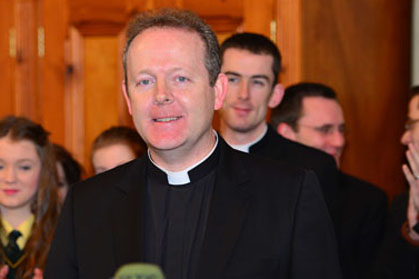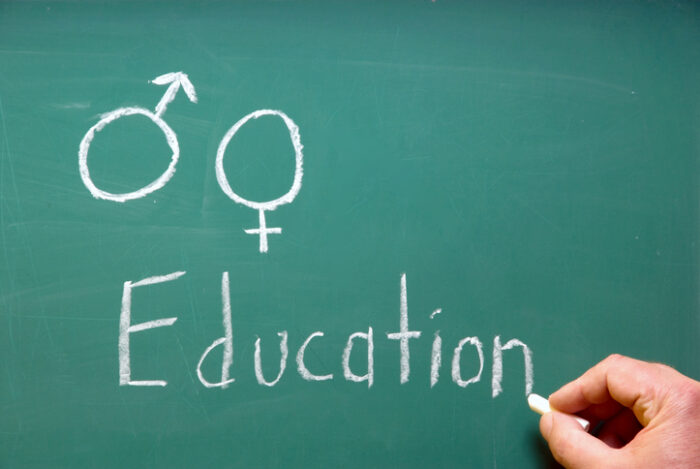
Childcare services in some of the country’s most disadvantaged communities are at risk of becoming unviable because of a reduction in subsidies to families without employment, a Labour senator has warned.
The new national childcare scheme (NCS), launched last year, gives working parents more than twice the subsidised hours it allows unemployed parents, Marie Sherlock, a Labour Party senator said.
Hundreds of children risk losing access to afterschool care since the NCS introduced an allocation of 20 subsidised hours per week for the children of non-working parents but gave 45 hours a week to those from households with employment.
While the allocations sound generous, hours spent in school are subtracted from the allowance, effectively depriving the school-age children of jobless parents of any subsidy.

The divorce rate in the UK has risen tenfold since 1961 while fewer people are getting married, according to the Office for National Statistics.
The ONS also found that people were getting married later in life, living in less crowded homes and more likely to own their own home.
While the majority — 68 per cent — of people aged 16 and over were married in 1961, this fell to 49 per cent in 2011.
In the 1960s, the divorce rate was only 0.8 per cent but this rose to 9 per cent by 2011. Divorce rates increased steadily but started to drop after 2003 as fewer people married and were typically getting married later in life — marriages at older ages tend to be less likely to break up.

Leading political figures have paid tribute to a Catholic priest slain in France on Monday.
The body of Father Olivier Maire, Provincial Superior of the Montfort Missionaries, was found at his community’s home in the western Vendée region.
A 40-year-old Rwandan immigrant, who had been given refuge by the community, handed himself in to police, confessing to murder.
French President Emmanuel Macron said that Fr Maire’s generosity and love for others were reflected even in the features of his face.
He offered his condolences to the Montfortians and all Catholics of France, adding that, “Protecting those who believe is a priority.”
Bishop François Jacolin of the Luçon diocese said Fr Maire suffered a “brutal death”, but he was “a victim of his generosity” and “a martyr to charity”.
Dominican nun, Sister Véronique Margron, said there is incomprehension that the priest died while practicing the great biblical virtue of offering hospitality to a stranger.
Yet, she said she hopes this tragedy would not destroy the ideal of hospitality and sharing.

A group of pastors have told UK Prime Minister, Boris Johnson, that they continue to be against vaccine passport proposals, especially if they are extended to churches.
The pastors intend to resend an open letter, which was originally published in April, to Boris Johnson and all members of Parliament to underline their opposition to the scheme.
They have asked that leaders of churches or Christian organisations who have not yet signed, might consider adding their name and sharing it widely.
The pastors, who are from a range of denominations, say it makes no logical sense in terms of protecting others to make vaccination the basis of whether someone is allowed entry to a venue, or participate in an activity.
They also say the introduction of vaccine passports would constitute an unethical form of coercion and violation of the principle of informed consent.
Finally, as Christian leaders, they envisage no circumstances in which they would close their doors to those who do not have a vaccine passport, negative test certificate, or any other “proof of health”. “For the Church of Jesus Christ to shut out those deemed by the state to be social undesirables would be anathema to us and a denial of the truth of the Gospel,” they write.

The Vatican is launching a research project on the family to be carried out by Catholic universities around the world.
Called the ‘Catholic Global Compact on the Family’, its purpose is to create “a shared program of actions for promoting the family throughout the world in light of the social doctrine of the Church,” a press release said.
According to organisers, “the compact involves the study and research centers on family present in the Catholic universities situated throughout the five continents, by collecting information and research carried out on the cultural and anthropological importance of the family, focusing particularly on family relationships, the social value of the family and good practices of family policies at the international level.”

A record rate of abortions by residents of England and Wales was registered for 2019.
The percentage of conceptions leading to a legal abortion among all women in England and Wales increased from 24.0% in 2018 to 25.2% in 2019, according to the Office of National Statistics (ONS).
This means that for every three live births there was one abortion.
The total figures showed that 207,384 of the 821,809 pregnancies conceived by residents of England and Wales in 2019 ended in abortion.
The abortion rate is the highest percentage of pregnancies to end in abortion since records on this figure began in 1990 in England and Wales, and marks the first time the figure has exceeded 25 per cent.
An already reported further rise in abortions in 2020 indicates the rate for that year may be even higher than 2019’s record rate.

The Archdiocese of New York has instructed priests not to grant religious exemptions for Covid-19 vaccines, saying that doing so would contradict the pope.
“There is no basis for a priest to issue a religious exemption to the vaccine,” stated a memo from the archdiocese’s chancellor, John P. Cahill.
“Pope Francis has made it very clear that it is morally acceptable to take any of the vaccines and said we have the moral responsibility to get vaccinated. Cardinal Dolan has said the same,” the memo stated.
By issuing a religious exemption to the vaccine, a priest would be “acting in contradiction to the directives of the Pope and is participating in an act that could have serious consequences to others”.
Vaccine mandates have begun to be announced at places of employment in the United States. The Catholic health care network Ascension will mandate coronavirus vaccination for employees, physicians, volunteers, and vendors, although it has promised some health-related and religious exemptions.

The Catholic Archbishop of Armagh has said he would like to see an end to growing hostility towards Christians in Ireland.
Speaking to the St Patrick’s Podcast, Archbishop Eamon Martin was asked what he would like to banish from Ireland in the spirit of the saint.
“If I think of when St Patrick became angry, he was angry with the soldiers of Coroticus for attacking his newly baptised Christians, for taking them off into slavery, for killing some of them, for assaulting them. I think I would like to ban persecution of people for what they believe in,” he said.
“I mean there’s a lot of people in Ireland today who want to live the Christian faith, who want to be Catholic, who want to publicly profess their Catholic faith and feel they cannot do so because of ridicule, because, in some cases, of downright oppression of what they believe in, and perhaps verging on forms of persecution. I would like to ban persecution from Ireland.”

A report claiming the Government had scrapped promised laws to introduce so-called “safe access zones” outside maternity hospitals and clinics providing abortion was quickly denied by the Health Minister, Stephen Donnelly.

A group of university staff have objected to the use of a Catholic resource for relationships and sexuality education (RSE) recommended for Catholic schools mainly because it reiterates Catholic teaching that marriage is between a man and a woman.
They have called on the Government to stop its introduction.
‘Flourish’ was developed by the Irish Bishops’ Conference for Catholic primary schools to supplement the National RSE program.
In a letter to Taoiseach Micheál Martin and Education Minister Norma Foley, the group of university staff argue that Flourish “conflates” education on relationships and sexuality with a religious perspective on the topics.
They say it could form and shape negative views among children towards some sexualities and identities, and in some cases towards themselves.
Introductory documents published earlier this year set out that while RSE in Catholic schools should affirm that every human being “is loved by God as they are”, the “Church’s teaching in relation to marriage between a man and a woman cannot be omitted”.